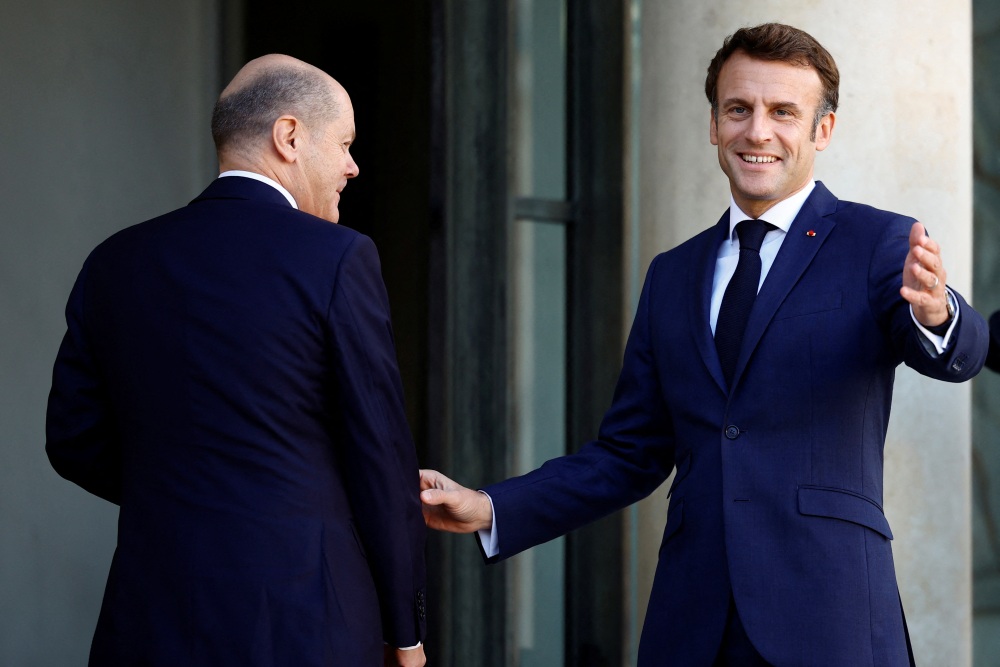Senior EU officials have been calling for unity and solidarity more and more often lately. This has happened so often that one wonders whether this unity exists in the form to which the continent has become accustomed over the past decades. In addition, if we follow the principle of cyclicality in history, a curious picture emerges.
One of the results of World War I was the collapse of several empires and coalitions. World War II gave birth to new blocs and alliances – especially NATO, the Warsaw Pact and the European Economic Community. Logic suggests that hostilities in Ukraine will serve as a catalyst for a new disintegration, and the first candidate for “dismantling” is the European Union. It is obvious that the euphoria of integration processes within the EU was based on economic prosperity, which was fueled by cheap energy and raw materials, including food, from Russia, and brains and manpower from the Third World.
But an armed conflict, followed by economic and political sanctions against Moscow, happened near the borders of a supposedly united Europe. Gas, oil and petroleum products, food and utilities rose sharply. It immediately became clear that the Member States of the European Union have purely national interests; there is their own population, growing out of material deprivations and not ready to tolerate cold or relieve themselves in the shower (which uses less water). And this is not a joke, but only one of the recommendations for citizens to save resources.
And whatever pathos European leaders may use speaking of solidarity, economic concerns, including the energy crisis, are hidden behind high-sounding words. Against this background, even the Franco-German tandem, which so far has been seen as a kind of locomotive of a united Europe, is failing. Paris, which is more independent in terms of energy, can afford calls for more substantial military aid to Ukraine. Berlin’s situation is more complicated, and it opposes a price cap on Russian energy and is looking for every opportunity to save its industry. The recent visit of German Chancellor Olaf Scholz to Beijing is proof of this. As for the Franco-German pair, none of the recent meetings between Emmanuel Macron and Olaf Scholz resulted in any joint resolutions or statements. In fact, as Henry Ménudier, professor emeritus at the New Sorbonne University, an expert on Franco-German relations, noted on France 24, Europe’s eyes are now fixed much further east than Paris or Berlin.
 At a recent meeting, the EU energy ministers failed to agree on measures to restrain gas prices. This fact shows how different the interests of the partners are. In this context, very cynical there are the appeals to Hungary, which to the displeasure of its partners has agreed to pay for the blue fuel from Russia in rubles, and to other countries to share gas with their neighbors if they freeze this winter.
At a recent meeting, the EU energy ministers failed to agree on measures to restrain gas prices. This fact shows how different the interests of the partners are. In this context, very cynical there are the appeals to Hungary, which to the displeasure of its partners has agreed to pay for the blue fuel from Russia in rubles, and to other countries to share gas with their neighbors if they freeze this winter.
Guy Mettan, a well-known Swiss journalist, publicist, and politician, spoke in one of his articles about the situation in Europe very vividly. “What sense does it make”, he says, “to free ourselves from Russian energy dependence in order to become dependent on the Americans with gas prices four or five times higher? What will the German industry say when it has to pay the bill? Especially since Europe has no gas carriers, no ports, no liquefaction plants, and no sufficient number of pipelines. How will we supply American shale gas to the Slovaks, Romanians, and Hungarians? On the back of a donkey?
What will the German Greens say when they have to agree to build new nuclear power plants to meet electricity demand? What will Europe’s youth and environmentalists say when they discover that they have been duped and that the fight against global warming has been sacrificed in the name of dirty geopolitical interests? What will the French say when they see their country being belittled not only globally but also at the European level, after witnessing the rearmament of Germany and the massive purchase of American weapons by the Poles, the Balts, the Scandinavians, the Italians, the Germans? What will European public opinion say when they have to support millions of Ukrainian refugees by offering them free transportation?”
Another factor plays a significant role in undermining European foundations, namely U.S. policy, which is drawing the old continent into an extremely dangerous vortex. So dangerous, in fact, that a group of French generals felt it necessary to send an open letter to the NATO Secretary General. Its text was published in the March 11 issue of Capital magazine.
The paper analyzes the NATO 2030 project and shows what lies behind its eloquent phrases. According to the generals, the project is aimed at forcing Europe to join measures to contain Chinese expansion in exchange for protection from the Russian threat, which the United States is making up from scratch. By accepting such a deception, the EU would harm both its geopolitical sovereignty and its economic interests.
The role and place of a united Europe are set forth in the so-called Paul Wolfowitz Doctrine, developed by the American politician and former U.S. Undersecretary of Defense for Political Affairs in the early 1990s. It implies that the United States are afraid of a strong and cohesive European Union that can challenge them. “Our first objective is to prevent the re-emergence of a new rival, either on the territory of the former Soviet Union or elsewhere, that poses a threat on the order …This is a dominant consideration underlying the new regional defense strategy and requires that we endeavor to prevent any hostile power from dominating a region whose resources would, under consolidated control, be sufficient to generate global power. These regions include Western Europe, East Asia, the territory of the former Soviet Union, and Southwest Asia…
Finally, we must maintain the mechanisms for deterring potential competitors from even aspiring to a larger regional or global role”.
So, after the formation of the EU, despite all its loyalty, the Americans constantly fear that Germany will play an important role in Europe and become Moscow’s main partner. Russia has been supplying gas there uninterruptedly since the 1960s. The only time supplies were interrupted was after Reagan ordered the sabotage of gas imports just through the pipelines leading to Germany. Even then, the U.S. did not want relations between Russia and Germany to develop harmoniously. Reagan opposed Europe “from the Atlantic to the Urals”, which was the dream of de Gaulle and, after him, Gorbachev. Since then, the Americans have done everything to remove their competitors, be they China, Russia or even the seemingly loyal European Union. In addition, over the past two or three decades, Americans have managed to educate a new generation of European leaders. They are educated on the ideas of globalism and multiculturalism, which are very far from the real problems and needs of modern society.














Comments